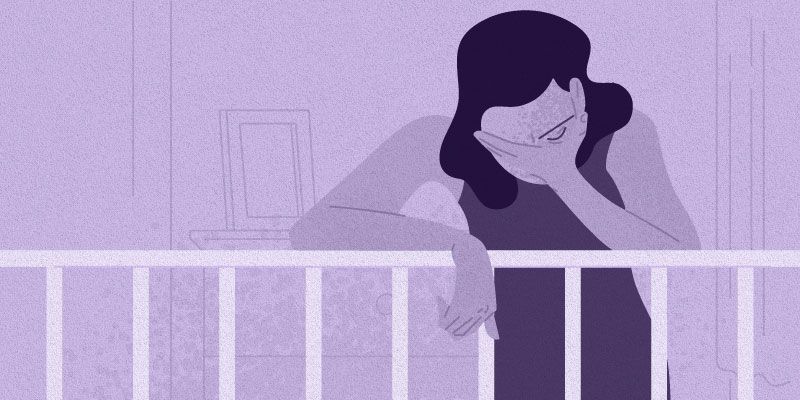Future of motherhood will determine the future of work in the post-COVID-19 world
Today’s reality shows women are bearing the brunt of the crisis far more before. It is widening gender gaps and eroding the power and freedom that women had just about started earning before the pandemic.
Since everyone is predicting factors that would determine the future of work in the post-COVID-19 world, I would like to join in and say that one of the most critical determinants would be the survival and resilience of mothers during and post-pandemic.
It has always been the mother in the house who is primarily responsible for maintaining the smooth flow of the rest of the family’s lives and it is her efficiency that almost exclusively determines the efficiency of the household.

This truth will now be even more critical in the coming months when the world deals with the different faces of the COVID-19 crisis. Today’s reality shows women are bearing the brunt of the crisis far more severely. It is widening gender gaps and eroding the power and freedom that women had just about started earning before the pandemic.
If this continues unabated, then it is quite likely that women could burn out physically and mentally. That will not only hamper their own ability to thrive but also have a disastrous effect on the men and the kids, on business and commerce, and on society in general.
Therefore it’ time to look at what women are going through and support them in the best ways possible to ensure life can actually thrive once the virus leaves us.
Increase in care burden and household duties
The first and most critical acknowledgement, of course, will have to be of the exponential increase in the care burden and household duties that has fallen almost exclusively on women, irrespective of whether they belong to the privileged or marginalised classes.
Women are left without domestic help, without the convenience of regular supply of groceries via ecommerce, without alternatives like home delivered food and without the option to buy helpful gadgets that they now feel the need for.
There are men who have been trying to lend a helping hand and pitch in by cooking, cleaning and looking after the children – perhaps the pressure from social media influencers appealing to all “men to help in domestic work” and asking men to post videos of themselves showcasing them doing the chores, has helped.
Men have also started bonding better with the children, since they now had real family time to spend together. But what has not happened, as yet, is a change in the patriarchal mindsets of the men and their families - a sustained level of patience and understanding is still missing. Which is why we are getting to hear bizarre stories of educated men inflicting violence on their educated wives for not cooking biryani or not making hot coffee or beating him at online Ludo. Wives are getting the flak for not “controlling” the pesky children disturbing during office calls.
With continued periods of quarantine, lockdown, no-domestic help, economic crisis et all – this burden on women does not look like it will be eased off anytime soon. So, can we do anything at all?
Building up patience and empathy
For one, we will need to fast track the mindset level changes in the men. They will have to learn to stop “helping their wife” and start working for their home and their children. They will have to forget about getting pampered with hot tea and four-course meals served to them on a platter, without moving a finger.
But I don’t know how this will happen. Perhaps the sheer enormity of the crisis will automatically lead to the metamorphosis. Maybe if influencers on media and social media could work on the men to build up patience and empathy – by pointing out the scary consequences of doing otherwise.
Secondly, we will need innovative support for facilitating ease of living for the women. This would mean finding hygienic ways of delivering the cut vegetables and ready-to-cook meals; gadgets and devices for helping with the cooking and cleaning.
Thirdly, and most importantly, will be the ability of women to negotiate for themselves. For years together, coaches and mentors have been telling women that they need to be able to negotiate better at work and at home, to ask for exactly what they need and to not settle for less. And this skill will be the most vital for women to survive in the coming future – to negotiate the best deals with the husbands and kids and in-laws.
The second concern to be addressed is managing health, well-being and support -systems for new mothers. Several women already delivered babies post-lockdown. Many more are on the way - UNICEF has estimated 116 million births between March and December 2020, of which more than 20 million babies will be born in India itself.
As per UNICEF, “New mothers and newborns will be greeted by harsh realities including global containment measures such as lockdowns and curfews; health centres overwhelmed with response efforts; supply and equipment shortages; and a lack of sufficient skilled birth attendants as health workers, including midwives, are redeployed to treat COVID-19 patients”.
That is one scary reality to deal with! It is unimaginable how new mums will bring up babies without their mums and nannies, while also facing scarcity of diapers and baby food. Imagine not having been able to shop for baby clothes and actually stitch nappies and dresses from old saris and dupattas. Imagine having to struggle to get the babies immunised in a safe, hygienic hospital.
What is needed is a conscious effort to let the supply chains of essentials for new mothers continue as smoothly as possible and also create safe ecosystems for new mothers locally. But most important will be for society to put a “pause” on judging mothers for the short-cuts and hacks that they may need to resort in order to survive and keep their life going.
The third area of intervention would be preventing mothers from quitting their jobs. Women working from home are dealing with a lot more than everyone else –all the housework plus excessive deliverables at work.
Employers must show empathy
Theoretically, employers have tried to show empathy towards working parents and many have introduced facilitative measures. But many women feel these are not enough and there is no real leniency.
They are pressurised to deliver output, because, as always, women don’t want the time spent on family duties comes across as a barrier to performance. They continue to face new manifestation of workplace biases, like being unable to speak up at in the online video meetings.
Many women trying to work with kids around are having a tough time managing to even “have a comfortable workspace at home” or follow a daily routine or engage their children constructively, as prescribed by the several “work-from-home” guides sitting in their inboxes. They are also unable to relate colleagues discussing things they’ve been doing with their “spare time” - like “upskilling” with online courses, brainstorming pathbreaking new ideas on company Slack channels or showing off business plans they’ve made for their new startup idea!
If all this continues for some more time – especially since many companies are deciding to move to work from home models, many working mothers will be forced to quit their jobs. Employers will have to make sure that women have a say in all policy planning and decision making. They must clarify in written that parents will not be penalised for lower efficiency. And all leaders and managers should be advised to ensure that women are able to get their share of “mic space” during meetings and discussions.
Last but not the least, we will have to support the mental wellbeing of women. Women are suffering from mental anxiety and depression more than men – one study has found that the existing gender gap in mental health has increased by 66 percent.
According to research, the increase in mental distress of women is not statistically attributed to increase in financial worries or childcare responsibilities.
What I found by speaking with women is that they are extremely stressed, even paranoid, about keeping the virus from entering into their homes. Then, the “mother’s guilt” is showing up in new forms – because mums are having to ignore children for most part of the day despite being physically next to them or having to leave children to unlimited screen time due to lack of options.
The mental health of children is suffering and mothers are getting affected by that as well. The mental harassment caused by husbands cribbing and abusing add up. Then the lack of “me-time” or even the struggle to create some me-time is distressing. Physical distance from their own parents or loved ones is adding to the emotional burden.
Therefore, we need to step up provision of mental health support for women and ensure help reaches them even if they can’t reach out themselves. Innovative methods of sending out reassuring messages and positivity via multiple channels. Information on helplines and support networks must be spread much more extensively and empathetically.
I would reiterate that in the attempts to revive the economy and the world post-COVID-19, a critical factor will be whether there will be a change in the society’s perception of mothers from “quintessential underdogs” to indispensable players in the ecosystem whose concerns cannot be taken for granted anymore.
(Disclaimer: The views and opinions expressed in this article are those of the author and do not necessarily reflect the views of YourStory.)











